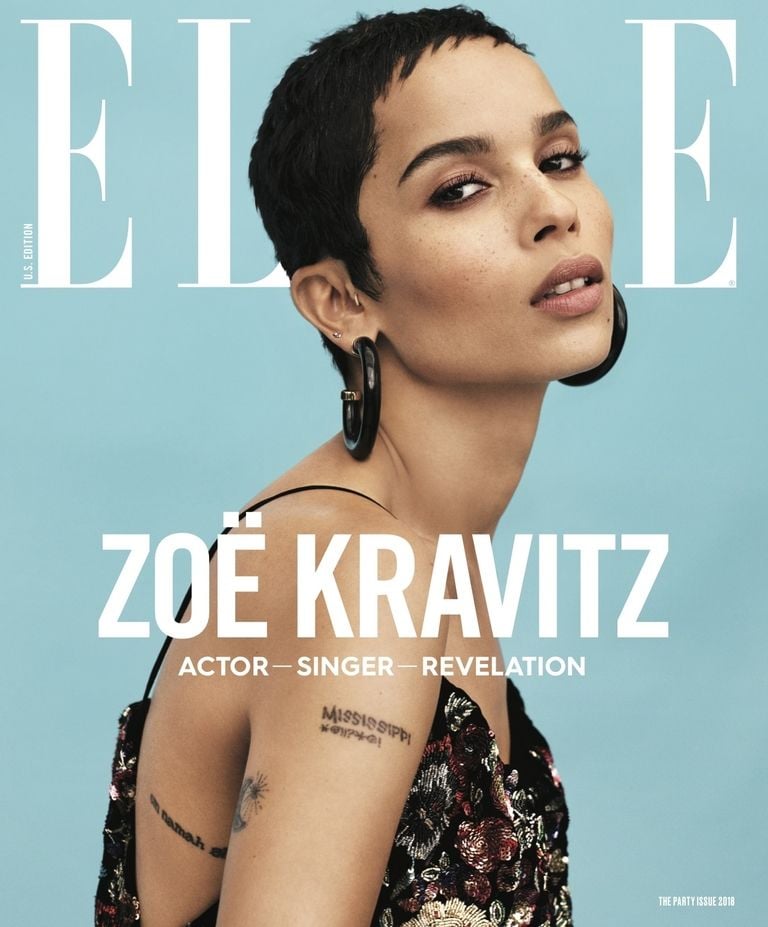After Elle banned Terry Richardson, it hired a woman to re-shoot Zoe Kravitz’s January cover
2018 is looking good—at least on the January cover of American Elle, which was just released yesterday. The cover star, shot by Argentinian photographer Paola Kudacki, is actress Zoë Kravitz, who was the only woman of color with a significant role in the critically acclaimed HBO miniseries, Big Little Lies. Equally key, the issue’s original cover wasn’t shot by a female photographer—but lensed by Terry Richardson, who has been banned by global media giants like Condé Nast and Hearst Magazines (Elle’s parent company) for allegations of sexual abusing his models. Richardson strongly denies the charges, but they’ve been corroborated by numerous models at different points in their career.


2018 is looking good—at least on the January cover of American Elle, which was just released yesterday. The cover star, shot by Argentinian photographer Paola Kudacki, is actress Zoë Kravitz, who was the only woman of color with a significant role in the critically acclaimed HBO miniseries, Big Little Lies. Equally key, the issue’s original cover wasn’t shot by a female photographer—but lensed by Terry Richardson, who has been banned by global media giants like Condé Nast and Hearst Magazines (Elle’s parent company) for allegations of sexual abusing his models. Richardson strongly denies the charges, but they’ve been corroborated by numerous models at different points in their career.
The newly appointed editor in chief, Project Runway judge and legendary fashion editor, Nina Garcia, had earlier commissioned Richardson to shoot the January cover. But as reported by the New York Times, after the Harvey Weinstein sexual harassment scandal broke in October, Hearst Magazines announced that they would no longer work with Richardson. Richardson’s original January cover, which was already in post-production, was killed and reassigned to Kudacki.
This—the January cover—is potentially the first magazine product since the Harvey Weinstein reports that has been redone, proving that change is happening, incrementally, brand by brand. But there are still many other photographers and other gatekeepers in the fashion industry who have behaved similarly, and are not suffering the same consequences. The demise of Richardson, many fashion insiders feel, is really just the first step in solving a wider industry—and society-wide—problem.
“I don’t want to sound like I’m defending him, but I thought it was important to put into perspective that every model has a story of a photographer, client, art director, stylist behaving inappropriately,” Katie Grand, the editor in chief of Condé Nast style magazine Love told the New York Times, a statement that also came to Garcia’s defense. “This will not be solved simply by banning the use of one photographer,” model Edie Campbell added.
Nonetheless, the new January cover is meaningful, both for its optics and culturally-relevant content. According to the sneak peek offered on Elle’s website, Kravitz chats with singer and actress Janelle Monáe about Harvey Weinstein and being a black woman in the entertainment industry. The contents of the conversation will be unknown until the issue hits newsstands on December 12. In a March 2016 cover story from Teen Vogue, Kravitz said, “Why aren’t women starring in more films? It’s because the men are writing them and are the ones cutting the checks. We can’t blame them, I personally don’t think. We need to take that extra step.” She also noted that she says no to films that peg her to stereotypes: “I’m not going to spend the rest of my life playing some girl’s friend or some girl on crack in the projects.”
What this hopefully means—especially for a magazine like Elle that prides itself on telling the stories of women and has supported the careers of hundreds of women in fashion—is that in 2018, empowerment finally far more than just a buzzword or cover line.